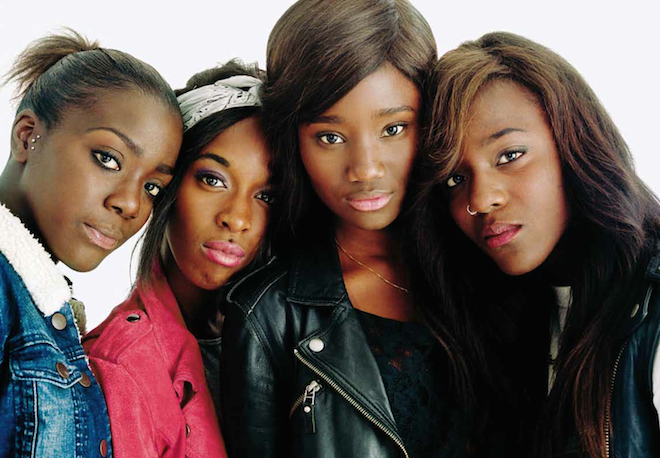French director Céline Sciamma tackles feminine identity and coming-of-age in her latest film Girlhood, which debuted at Cannes last year. Originally attracting attention because of the implications of a white filmmaker directing and writing a story about black teenagers in the infamously troubled Parisian banlieues, the film has been nominated for four Césars, including Best Director and Most Promising Actress for its star, 20-year-old newcomer Karidja Touré.
Coming-of-age is not a new topic for Sciamma – witness her last two projects, Water Lilies and Tomboy – but a group of black teenage girls is a subculture that has rarely been depicted before. Protagonist Marieme is oppressed by her family setting, dead-end school prospects and the boys law in the neighbourhood. She starts a new life after meeting a group of 3 free-spirited girls, changing her name, her dress code, and quitting school to be accepted in the gang, hoping that this will be a way to freedom.
The result is a sensitive portrayal of feminine identity within the framework of social pressure, restrictions and taboos, of which image and identity are central. Perhaps most importantly, Girlhood’s success and publicity has made this particular subculture a lot more visible in France.
Girlhood airs in UK cinemas on 8th May.



 Twitter
Twitter
 Tumblr
Tumblr
 YouTube
YouTube
 Facebook
Facebook
 Instagram
Instagram
